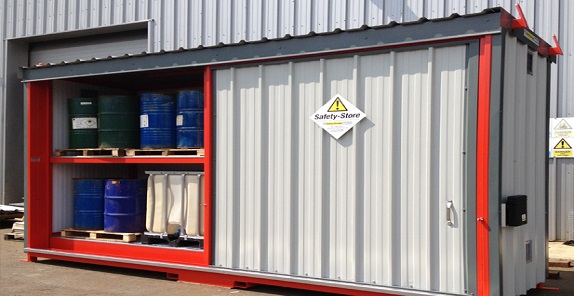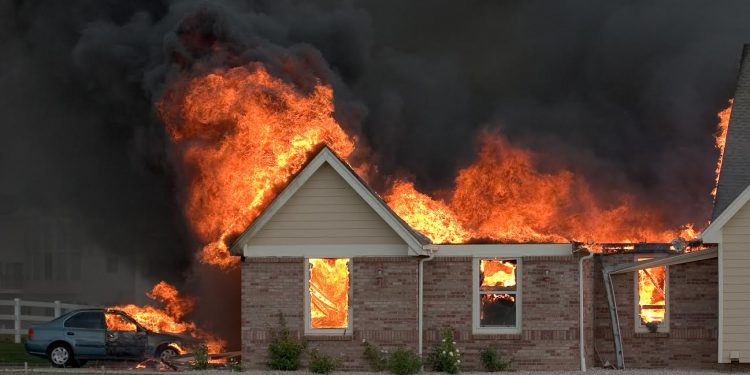In every 87 seconds, there is a house fire taking place. Furthermore, in a matter of a couple of minutes, the fire can become fatalistic.
Losing your precious belongings and home to fire is a terrifying thought. Therefore, it is better to take necessary steps to prevent the fire from taking place.
In this article, we’ll discuss various ways of how to prevent a house fire.
Ways to Prevent A House Fire
Here are a few ways to ensure your house remains safe from fires.
Inspect the Smoke Alarms
It is no doubt that smoke and fire detectors are one of the strongest weapons in your arsenal against a house fire. As soon as the detectors catch heat and smoke, they will start running. This ensures that you take care of the issue before it has the chance to cause damage.
Don’t Forget to Check The Batteries!
If the batteries in your smoke alarm are drained, your house will be at a greater risk of getting damaged in the wake of a fire.
How to prevent this? Be aware of the chirping sounds the smoke alarm makes because it is a notification for low battery. When you hear the chirping sounds, replace batteries as soon as you can.
Test the Alarm Each Month
One of the most effective ways of making sure your smoke detector works fine and prevents a serious fire damage in your home is to inspect the detector regularly.
You can test the smoke detector once every month to ensure it’s working fine.
Even though testing can be different as models change, most detectors have a button that you can press to hear the alarm. You may also take someone’s help to see if they can hear the alarm in a faraway room.
Be Aware of Kitchen Appliances
Even though washing machines and stoves make life easier, they pose a fire threat as well. Therefore, you need to be careful while using them as well as when they’re not in use.
When you cook, make sure that the stove, oven, and hot plate are away from curtains, wash cloths, chemicals, etc. Moreover, be careful about leaving the kitchen unattended while there’s something on the stove. Furthermore, it is better to keep a fire extinguisher in your kitchen to battle fire emergencies.
Just a thought: if you’re a tenant worrying about having your belongings damaged in the wake of a house fire, get tenant insurance. This will help you in compensation in case of house fires and is a way of safeguarding yourself as a tenant. For more information about tenant insurance in Toronto, read this article.
Inspect the Cords
Another fire hazard is damaged electric cords. As you use electric cords, please inspect them to see signs of damage or chewing. If you do see damaged wires, replace them as soon as you can.
Moreover, you want to see where you’re placing the cords. The cords become hot with use. Therefore, you don’t want to put them underneath rugs or carpets as that can be a fire hazard.
Proper Storage of Flammable Products
Flammable items aren’t only limited to the kitchen and laundry—they are present in your rooms as well, in the form of hairsprays, perfumes, shaving creams, etc. These products are highly flammable and should be kept away from sources of heat and flame. Moreover, keep these products away from your space heaters as well!

Follow Self-Care With Caution
We get it—self-care is all the rage these days, and the true need of the hour as well. An essential part of self-care is lighting a few candles of your favourite scents.
However, unattended candles pose a fire threat. Therefore, make sure that you blow out all the candles as you’re exiting a room, or going to sleep. Moreover, make sure the candles are not in the vicinity of blankets, cushions, rugs, etc.
Furthermore, if you have pets, make sure the candles are placed at a height that your pet(s) can’t reach. You shouldn’t leave your pets unattended in the presence of candles either.
Be Extra Careful with The Fireplace
The Holiday Season is all about lighting the fireplace, snuggling up in a blanket, drinking eggnog, and enjoying time with family or by yourself.
However, the fireplace is yet another source of fire hazard. You need to be careful of the stray sparks that escape onto the flooring. Moreover, as you’re disposing of the ashes, make sure they are cooled down. You can also get a separate metal container to dispose of the ashes of your fireplace.
Don’t forget to organize financial protection
Whether you’re anxious about the possibility of a house fire or simply want to secure your future finances, it’s important to have a plan in place to secure your finances.
As touched upon, monetary coverage such as home insurance or tenant insurance for renters ensures fire accidents don’t lead to increased financial losses for your personal possessions. Fortunately, you can easily search for a tenant insurance quote online and find coverage that suits you and your living situation.
Taking the time to organize a comprehensive list of your possessions (including pictures of their current condition) now will save you significant time and effort in the event of a house fire. Evidence of the possessions you require compensation for can help speed up insurance proceedings while simplifying the often traumatic experience of searching for sentimental and valuable items post-fire.
Fire Extinguishers Are Your Friends
It goes without saying that you need to keep fire extinguishers in your home. These are your best defence against a fire scenario. You don’t necessarily have to keep one in each room—keep them in the rooms that are the most vulnerable to fires, such as the kitchen, the laundry room, the garage, etc.
Moreover, it is better to have all your family members or housemates know how to use the fire extinguisher. If you have kids,train them how to deal with a fire emergency as well as guide them how to use a fire extinguisher so they could save themselves even if you’re not around.
Wrapping Up
In this article, we discussed how to prevent a house fire.
The guide involved tips like inspecting smoke alarms, being cautious of appliances, inspecting the cords, proper storage of flammable products, using candles with caution, keeping an eye on your fireplace, and keeping fire extinguishers in vulnerable areas of your home.






